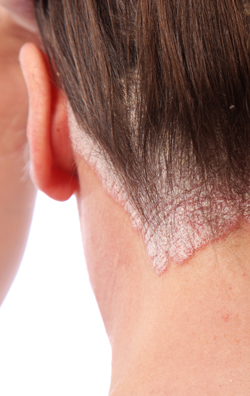
HER2-positive breast cancer is a cancer that tests positive for a protein called human epidermal
growth factor receptor 2 (HER2). It normally affects on the surface of normal breast cells. The very high number of HER2 cells stimulate the cancer cells to divide and grow. This is called HER2 positive breast cancer.This excess of HER2 is the after effect of gene mutation. But this mutation can't be inherited, it can only occur in cancer cells.
Testing for HER2
All women with breast cancer have to check the HER2 level finding test of the breast cancer
cells. Testing is done in the sample of the breast tissue removed through biopsy. The result, whether
positive or negative helps the doctors decide which treatment will be most effective.
If the cancer returns after initial treatment, women may have to check her HER2 levels again. In
rare cases, maybe 1 in 5 or fewer, the HER2 level may have changed. Another biopsy can confirm
this.
The major methods used for HER2 testing are immunohistochemistry or IHC and fluorescence in-situ
hybridization or FISH.
1. IHC test (ImmunoHistoChemistry): The ImmunoHistoChemistry test finds out if there are too much HER2 protein in the cancer cells. The HER2 level is graded from 0 to 3+.
2. 0–1+ means normal, and the result is HER2 negative
3. 2+ means borderline
4. 3+ means the level is high, and the result is HER2 positive.
Those with 2+ and above results are recommended to do the FISH test. The test results help to
identify whether the 2+ people will benefit from treatment with Herceptin.
FISH test (Fluorescence In Situ Hybridization): The Fluorescence In Situ Hybridization test finds out the amount of the HER2/neu gene in the cancer cells. This HER2/neu gene is responsible for the overproduction of HER2 protein in each cell. FISH test can either be positive that is HER2 gene amplification or negative (no HER2 gene amplification). About 25% with a 2+ result will have a positive FISH result.
Apart from the FISH test there are SPoT-Light HER2 CISH test (Subtraction Probe Technology
Chromogenic In Situ Hybridization) and Inform HER2 Dual ISH test (Inform Dual In Situ
Hybridization) which tests the same factors.
Usually, only cancers that test IHC 3+, FISH positive, SPoT-Light HER2 CISH positive, or Inform
HER2 Dual ISH positive react well to the medicines that target HER2-positive breast cancers.
Treatment
HER2-positive breast cancers are mostly more aggressive than the other types and are less
reactive to hormone treatment. Specially targeted medicines which are very effective include:
1. Trastuzumab (Herceptin). Trastuzumab, often used with chemotherapy, destroys the HER2 cancer cells and decreases the risk of recurrence. It may also be used alone or with the accompaniment of aromatase inhibitor or tamoxifen. Trastuzumab's toleration level is high, but has some potential side effects like congestive heart failure and allergic reaction.
2. Lapatinib (Tykerb). Some HER2 positive cancer doesn't respond to trastuzumab. In such cases lapatinib is used. This can also be used in combination with the chemotherapy drug capecitabine (Xeloda) and the aromatase inhibitor letrozole (Femara). The combination of both Trastuzumab and Lapatinib are also being studied. Common side effects of Lapatinib include rashes, loose stools and the potential risk of congestive heart failure





